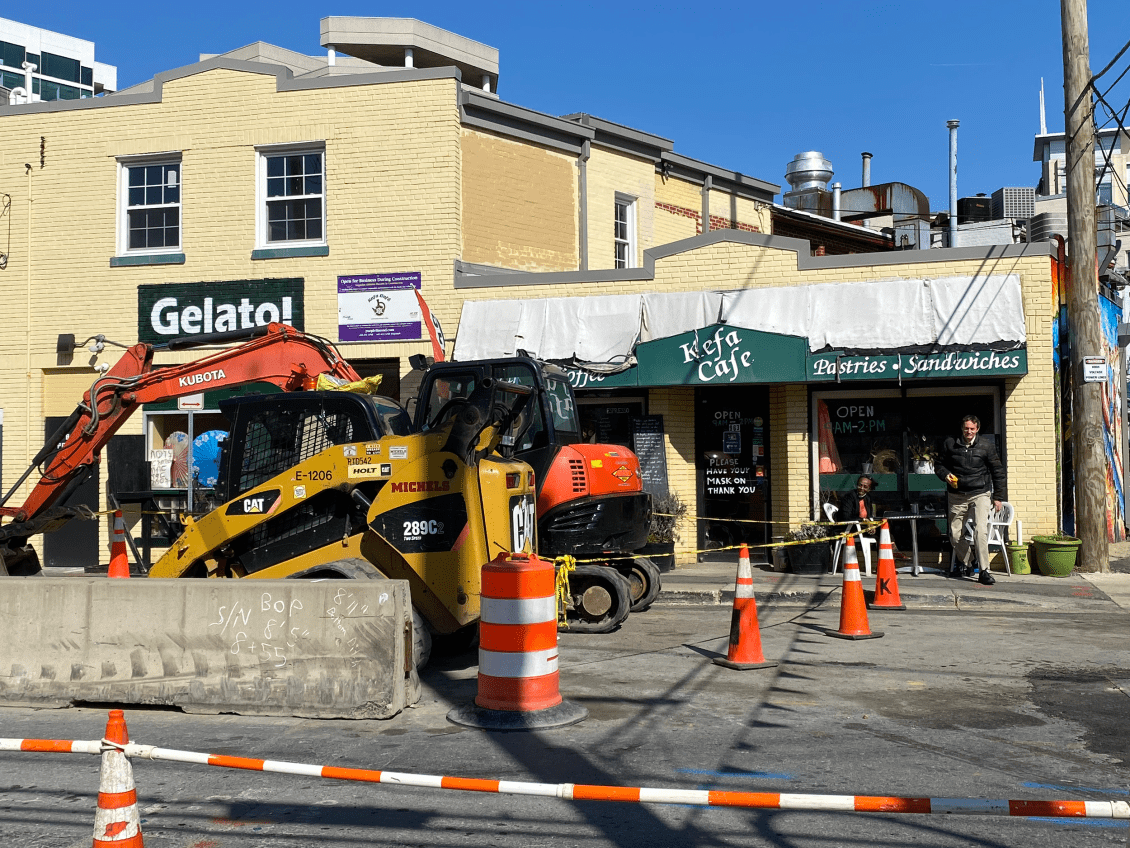In 2017, construction began on a 16.1-mile rail line – known as the Purple Line – with the goal of conveniently connecting riders in two adjacent Maryland counties. The rail line linking Prince George’s and Montgomery counties is scheduled to be complete in 2027.

As someone who has lived in the new Purple Line Corridor for over 20 years, I fully understand the need for a light rail linking Prince George’s and Montgomery counties and the positive impact it will have. But I also see the challenges the construction has brought to our local businesses and residents.
In 2019, JPMorgan Chase made a $5 million philanthropic investment in the Purple Line Collaborative, a subset of organizations actively participating in the Purple Line Corridor Coalition (PLCC). This funding wasn’t to support light rail construction, but to support the small businesses close to the construction and stabilize residents living nearby.
Funding Brings Neighborhood Impact
With better transportation also often comes higher-cost homes. The collaborative’s goals were to build or preserve at least 1,000 affordable housing units and preserve at least 200 existing small businesses in the Corridor.
The Purple Line Collaborative (PLC) is made up of Enterprise Community Partners (Enterprise), Latino Economic Development Center (LEDC) and National Housing Trust (NHT). These organizations understand that the development of the transit line also has the potential to exacerbate inequitable outcomes and increase displacement pressure on small businesses and existing residents.
Four years after the firm’s initial investment, which is aligned with JPMorgan Chase’s $30B racial equity commitment and our firmwide commitment to advance inclusive economies in the Greater Washington D.C. region, we’ve seen the impact our funding has brought. LEDC preserved 275 small businesses and helped to retain 258 jobs, NHT has deployed loans to preserve and create 1,058 units of affordable housing.
Businesses Need Continued Support
Kyaw Mint (Joe) of Mandalay DC Restaurant has been in business since 2004 on Bonifant Street. He recently shared how critical it was to get hands-on support from the LEDC team on marketing and social media. LEDC also helped Joe apply for relief grants from Montgomery County due to the advocacy of the PLC. Joe wants everyone to know the businesses on Bonifant St. still need help, and some businesses need even more support than he does to stay open and continue to serve customers through the construction disruptions.
Transit-oriented development (TOD) had emerged as a powerful strategy for creating sustainable and vibrant communities. The PLC partners sought to build on lessons learned from national TOD projects that led to increased property values and in turn pushed out low-income residents and small businesses.
Understanding these risks and challenges, the community development field and municipalities have since made strong shifts to promote equitable transit-oriented development (ETOD) and facilitate equitable development that centers the needs and voices of existing community stakeholders, helps to advance racial equity, and promotes anti-displacement and community wealth-building.
JPMorgan Chase funding catalyzed the PLC’s effort and despite facing the COVID-19 pandemic, the firm is proud of the outcomes for residents as well the collaborative’s advocacy which has delivered new partnerships with local governments and achieved policy wins that strengthen housing affordability systems in the region.
Inspiring New Corporate Investors to Support Collaborative
As our $5 million investment winds down, all three Community Development Financial Institutions expect to remain active in equitable development efforts along the Purple Line Corridor. The Purple Line Capital Pool is a revolving fund, meaning that NHT will continue to issue loans using funds that have been repaid by previous borrowers even after the grant period ends. We hope our involvement in this work will inspire other corporate funders to support the collaborative.
We are thankful for all partner institutions, Enterprise, LEDC, NHT, the Purple Line Corridor Coalition at the University of Maryland’s National Center for Smart Growth, Urban Institute, private sector partners, municipal agencies, government leaders, and all the community stakeholders who joined hands to work towards a future when development brings increased economic opportunities for all.
This multi-part blog series highlights the impact of work by Enterprise Community Partners, the Latino Economic Development Center, and the National Housing Trust in communities near the Purple Line expansion. This work was generously supported by JPMorgan Chase through its PRO Neighborhoods initiative.
